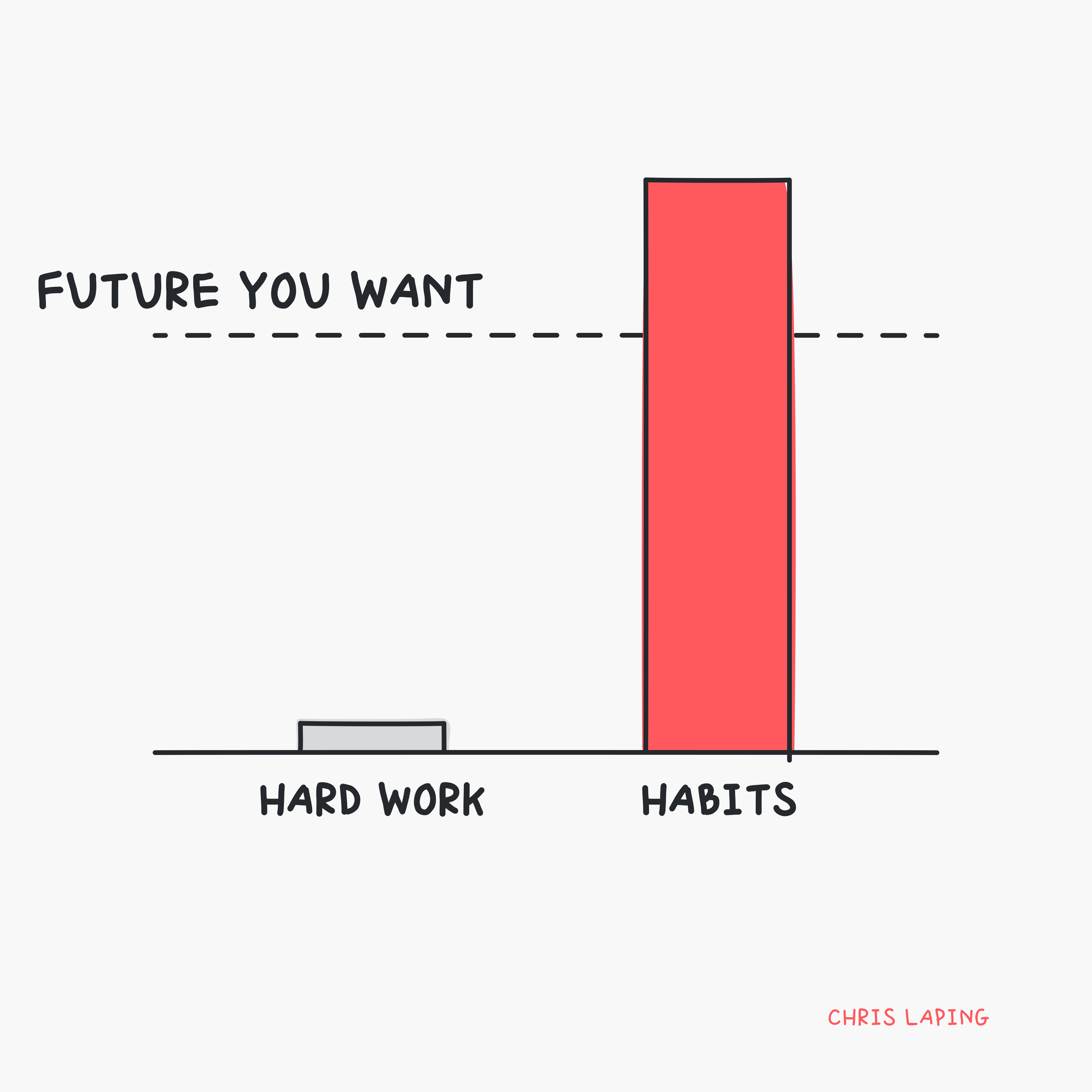The 6 Daily Habits of a Better Leader (They're Not What You Think)
Read time: 3 minutes / Subscribe to this newsletter
The most underrated way of growing your career or leadership is living a healthier life.
That may seem idealistic, but it’s more pragmatic than you think.
When you’re in control of your personal health, people consciously (and unconsciously) notice it. You exude confidence and model strength—two attributes that people associate with leadership.
What often holds us back from improving our overall well-being is an “all or nothing” attitude. We get overwhelmed with all the commitments healthy living seemingly requires.
It doesn’t have to be complicated though. There are simple steps we can take to create momentum.
Today, I’m sharing a powerful framework from positive psychologist, Andy Ramage, called The Six Streams of Positivity detailed in his book, Let’s Do This.
I use this model with all my coaching clients, and I’ll share it with you today. I’ve broken it down into manageable pieces, each with an easy starting point.
Let’s explore each stream:
I.
Alcohol-Free Living (Time commitment: 28 days to start)
Alcohol is poison—it’s a scientific fact. We often use it to mask discomfort, blocking out emotions like pain, frustration, boredom, anxiety, and sadness. But those emotions help us build resilience, mental clarity, and wisdom—three traits that make us great leaders.
Start here:
Try a 28-day alcohol-free challenge. You don't need to commit to forever; just experiment with one month. Consider joining One Year No Beer (OYNB), which offers excellent resources and community support for beginning your alcohol-free journey. I started with their 28-day Dry January challenge, and it led me to six years alcohol-free.
II.
Nutrition (Time commitment: 5 minutes per shopping trip)
This isn't about dieting—it's about energy. When we eat more plant-based whole foods, we increase our capacity to experience a vibrant life. You don't have to go vegan; instead, focus on consuming less processed food and being mindful of portions. Stop eating when you feel 80% full.
Start here: Read food labels before purchasing. Focus on "added sugar"—aim for products with no more than 6 grams per serving. A simple swap: replace your afternoon processed snack with fresh fruit and nuts.
III.
Movement (Time commitment: 5-30 minutes daily)
Notice I didn't say exercise. You don't need an intense gym routine to be healthy. The goal is to move every day in a way that brings you joy. This is less about weight loss (nutrition handles that better) and more about managing stress and building energy.
Start here: Build a daily walking habit. Focus on consistency over duration—even 5 minutes counts. Get outside, breathe fresh air, and just move. Mark your calendar each day you walk, no matter how brief.
IV.
Sleep (Time commitment: Set aside 7-8 hours)
While sleep needs vary by individual, the key is finding your natural rhythm. Though the common wisdom of 8 hours isn't universal, scientists agree that consistently getting less than 5 hours is harmful. The goal is to prioritize sleep as a foundation for everything else.
Start here: Establish a consistent wake time seven days a week. During your next break from work, experiment: go to bed when tired and wake naturally without an alarm. After 5-7 days, you'll understand your body's natural rhythm and can adjust your schedule accordingly.
V.
Quiet Time (Time commitment: 5 minutes daily)
Last week, I covered the power of the 5-minute intention. Prioritizing time every morning to reflect on your life, what you are grateful for and what you want out of the day adds to your mental clarity and focus. There are many ways to do this, which include journaling, meditating, praying, and even walking.
Start here: The 6-Minute Diary (which actually takes less than 5) is a great place to start. Its evidence-based daily prompts guide meaningful reflection that immediately impacts your day's quality. Schedule this time first thing in the morning, before checking email or news.
VI.
Connection (Time commitment: 5 minutes daily)
Harvard's longest-running study on happiness reveals a profound truth: good relationships are the single most important factor in health and happiness. Yet we often sacrifice nurturing relationships for work. Ironically, prioritizing connection makes us more effective at work.
Start here: Make one meaningful 5-minute call daily. (Not text or email—you must call.) Say, "I only have a few minutes to chat, but I was just thinking about that funny time you and I..." This small habit compounds powerfully. For example, my weekly hour-long conversations with my dad started as brief check-ins and have become a cherished ritual for three years running.
Leadership starts with self-leadership, and self-leadership starts with well-being. Through my years in C-suite roles, I've seen how personal health directly impacts professional success.
The clarity, confidence, and strength that come from good health aren't "extra credit"—they're foundational to effective leadership.
Your coach,
Chris
P.S. ⭐ Ready to transform your health and leadership? I offer evidence-based executive coaching designed specifically for ambitious tech leaders who want to perform at their peak. Book a free 30-minute consultation to discover how we can work together.
